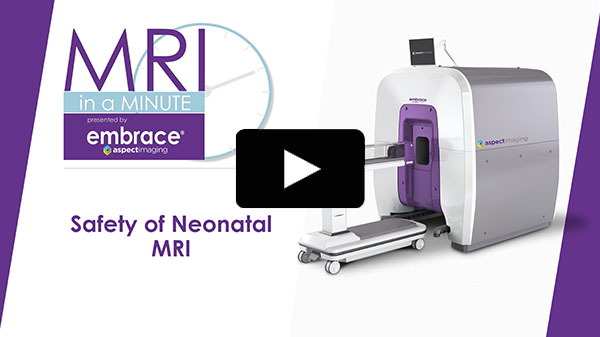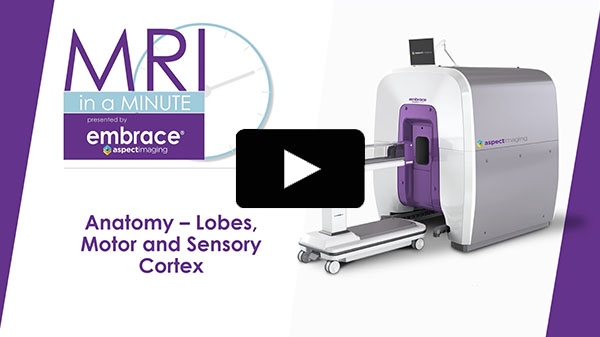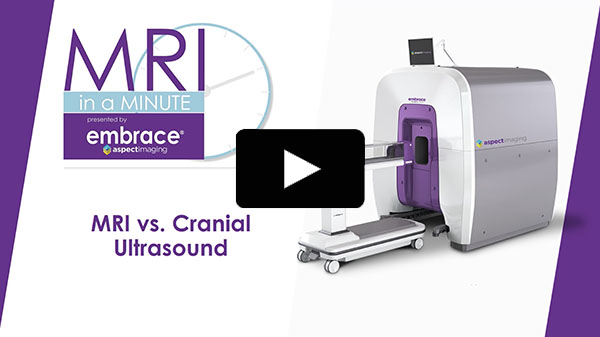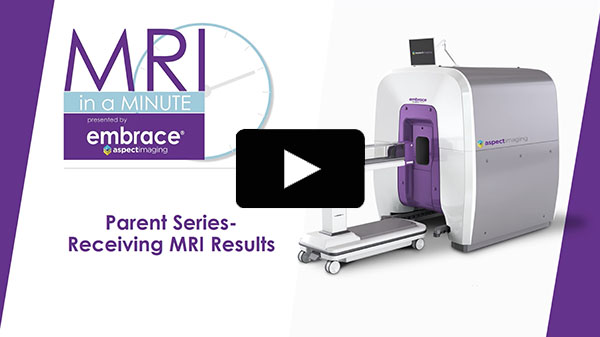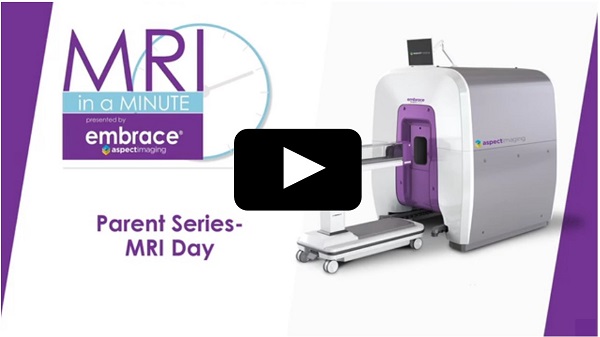While in the Neonatal Intensive Care Unit (NICU), a number of tests and procedures may be ordered to help diagnosis your baby’s condition and determine an effective course of treatment. Though some procedures may be considered routine by the care team, we understand that they are anything but routine for you. Such events, together with fear of the unknown can often be the source of increased anxiety and concern. But, we believe that knowledge is power as well as comfort, particularly when it comes to ‘MRI Day’.
Magnetic Resonance Imaging (MRI) is a powerful diagnostic tool that provides a more detailed view of your baby’s brain than that which can be obtained with an ultrasound. In fact, MRI scans can offer valuable insight to support both immediate and longer term care decisions for your child.
The following information is designed to give you a better understanding of MRI–what it is, how it works and how it can be used to support the care of your baby–so you and your family are more prepared and more comfortable knowing what to expect on your ‘MRI Day’.
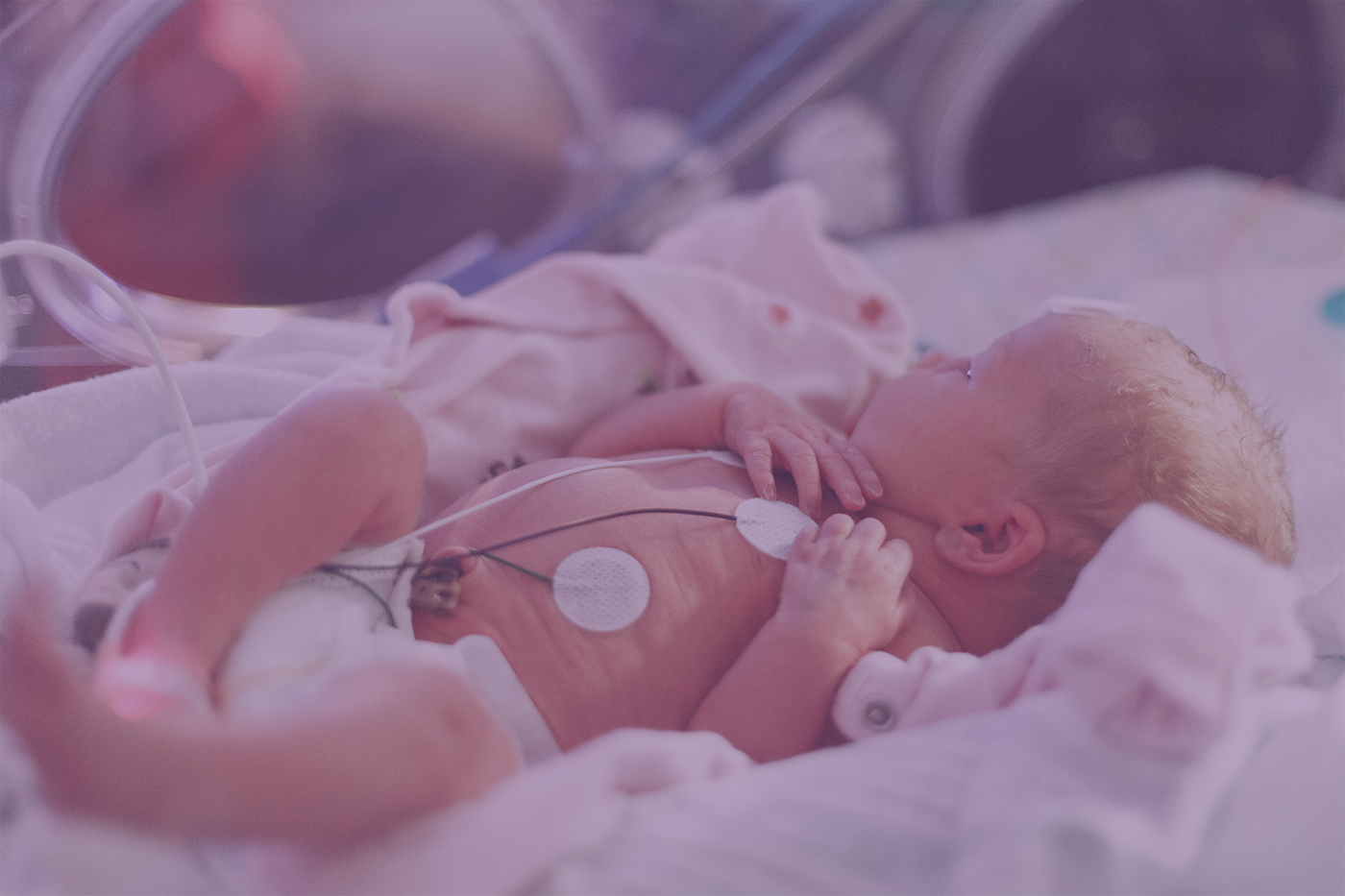

1. Where is the damage located?
2. What do the parts of the brain do that are impacted?
3. What have you seen clinically and in research associated with this type of injury pattern?
4. What does this mean overall to my child’s care?
5. What is unique about a baby brain vs. an adult?
6. What are some things that will help stimulate my child’s neurological and developmental growth?
7. What is the recommendation of any repeat MRIs? What would you hope to see?
8. Would additional MRIs change the course of treatment?
If an MRI is ordered for your baby, you may have a number of questions for your care team. But, where do you begin? Here are a few key questions posed by NICU parents themselves, who have already experienced ‘MRI Day’ with their own baby. Use these to start the conversation, learn more about the MRI scanning process and how it can provide valuable insight and support for the care of your baby.
Click below to download and print the full document to discuss with your
NICU care team.
MRI in a MINUTE
Learn more about Magnetic Resonance Imaging — what it is, how it works and what to expect — with these quick and easy video tutorials.
MRI Glossary of Terms
The following illustrates and defines key terms related to brain anatomy, types of brain injury and causes of brain injury in babies.
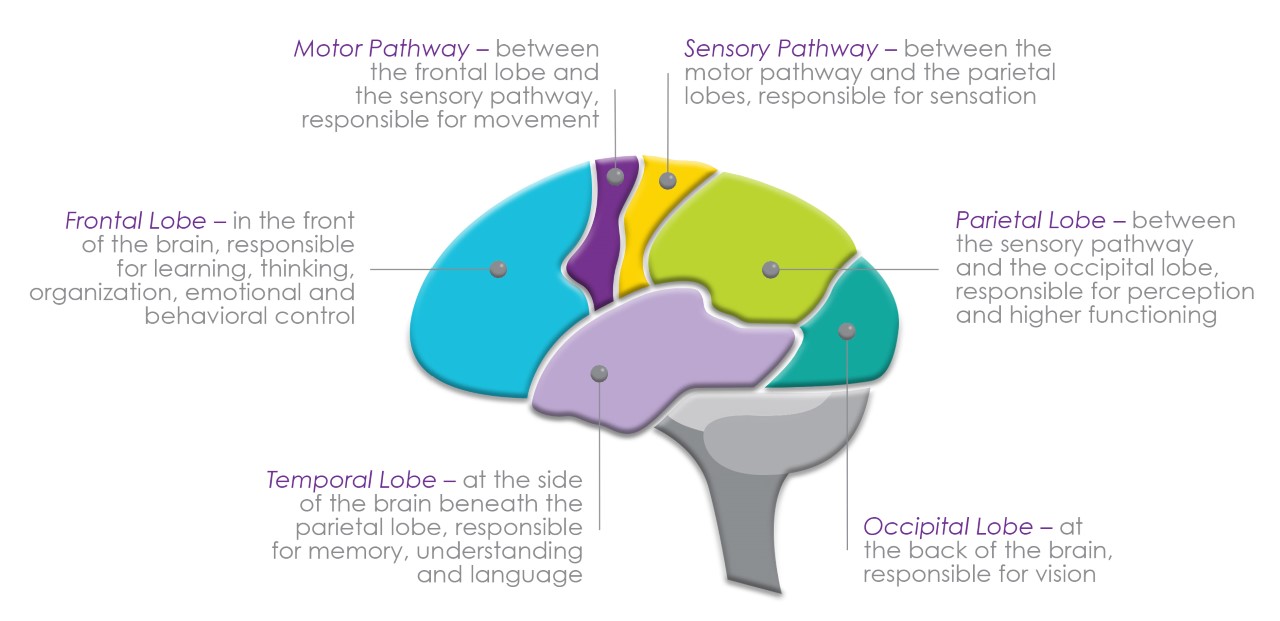
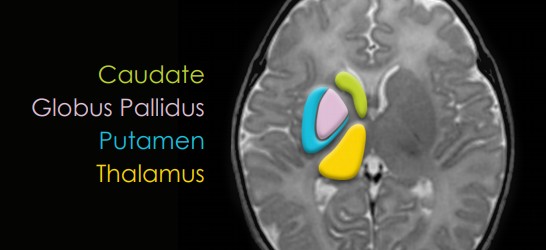
- Basal Ganglia –- the deep structures of the brain that receive messages from the motor and sensory pathways and pass those messages along to the brainstem and spinal cord
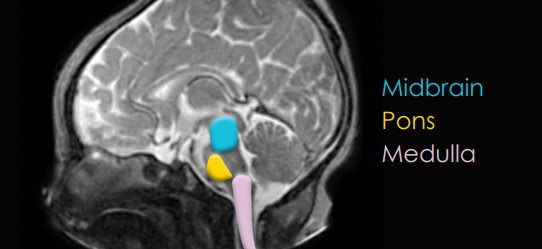
- Brainstem –– the regulatory center of the brain, where heart rate, blood pressure and breathing are controlled
Causes of Brain Injury in Babies
- Hypoxic Ischemic Encephalopathy (HIE) –– a lack of oxygen (hypoxia), causing brain damage (ischemia) and a reduced level of consciousness (encephalopathy)
- Intraventricular Hemorrhage –– bleeding in the hollow fluid filled spaces of the brain
- Extraventricular Hemorrhage –– bleeding into the brain tissue
- Meningitis –– an infection in the brain from bacteria, causing inflamation
- Encephalitis –– an infection in the brain caused by a virus, causing inflammation
- Congenital Brain Malformation –– abnormal development of the brain during pregnancy
Click below to download the complete MRI Glossary of Terms.
Types of Brain Injury
- Watershed Injury –– brain injury, from a lack of oxygen or blood supply, that occurs in the region of the brain where there is grey and white matter, along the borders of the hemispheres of the brain called the watershed zones
- Basal Ganglia Injury –– brain injury, from a lack of oxygen or blood supply, that occurs in the deep structures of the brain
- Subdural Hemorrhage –– bleeding under the skull
- Subgaleal Hemorrhage –– bleeding outside of the skull but under the skin
- Hydrocephalus –– too much fluid (cerebral spinal fluid) in the ventricular system of the brain
- Stroke –– a lack of oxygen or blood supply to an area of the brain due to a blockage from a clot
- White Matter Injury –– injury to the white matter of the brain, usually in preterm babies
- Diffusion Restriction –– restriction in the movement of fluid through the brain, diffusion restriction indicates the area of the brain that is damaged
- Metabolic Injury –– occurs when there are substances (metabolites) in the brain that should not be there, or when there is not enough of a substance that should be there
Additional Resources and Support for NICU Families
The following organizations, are dedicated to providing resources, education, support and hope for NICU parents and families throughout their journey.
MRI Designed to Keep Babies and Parents In Their Comfort Zone
The Embrace® Neonatal MRI System is the first, FDA cleared, CE approved system designed specifically for use with pre-term and critically-ill babies inside the NICU. This innovative, point-of-care solution features a thermo-controlled patient bed that keeps babies safe and comfortable in their care environment, while the system’s unique design allows parents to remain close to their baby throughout the scanning process. Scans can be completed more quickly and easily without leaving the NICU, for a more comfortable, less stressful experience for everyone.
Ask your care team about Embrace® and the benefits of MRI
inside the NICU.
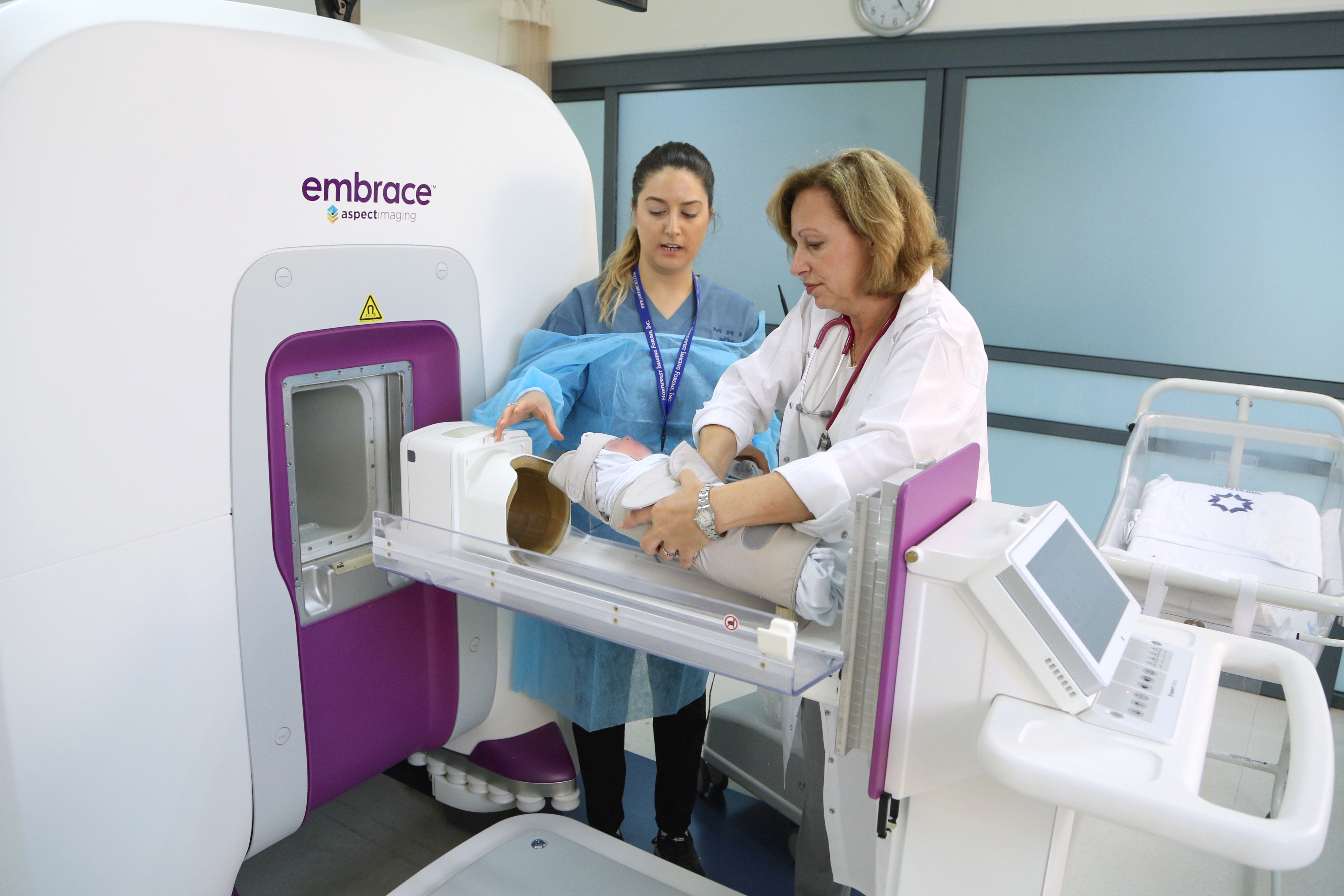

About Aspect Imaging:
Aspect Imaging is a global leader in the design and development of compact, MR imaging systems for Pre-Clinical and Medical applications. Through state-of-the-art technology, Aspect Imaging offers innovative point-of-care MRI solutions, including the Embrace® Neonatal MRI System, which is designed to facilitate enhanced patient-centered diagnostic capabilities inside the NICU.
For more information, visit our website at www.aspectimaging.com.

